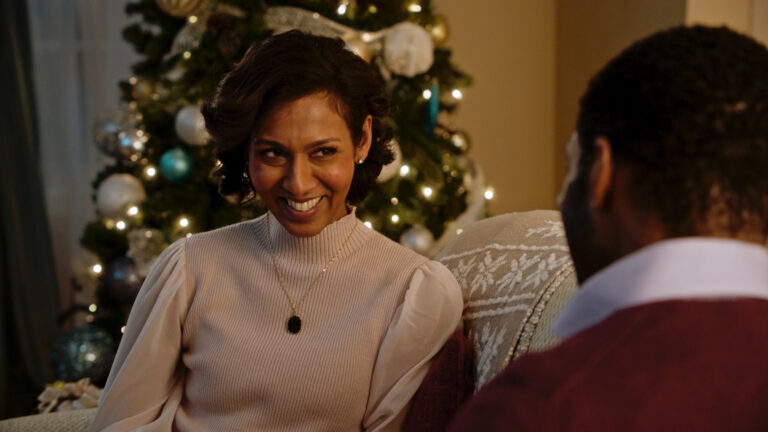While screens dominate our lives and visual content floods every feed, audio remains an intimate, raw, and wildly underexplored medium—perfect for the kind of stories that don’t need spectacle to hit hard.
Enter Mrs. Bibi.
Starring the powerhouse Nimra Bucha and created by award-winning writer-director Waleed Akhtar, this bold, funny, and unexpectedly emotional audio drama cuts through the noise.
Mrs. Bibi is a whirlwind of humor, heart, and sharp social critique. In just an hour, it manages to be hilarious, deeply moving, and uncomfortably real. The story follows Yasmin, a British-Pakistani actress (Nimra Bucha) who finally lands her big break—playing the ultimate aunty in a hit sitcom. But success is double edged. Playing an exaggerated, constantly complaining older woman makes her uneasy, especially when she starts to wonder if she’s reinforcing the very stereotypes that harm South Asian women in real life.
One of the play’s sharpest insights is its nod to Bibi Syndrome (or Begum Syndrome)—a colluqiual term used by healthcare professionals to dismiss older South Asian women’s medical concerns as exaggerated, often leading to undiagnosed conditions. Yasmin wrestles with the idea that she’s contributing to this harmful trope, and it’s just one of the many ways the play layers personal struggles with broader societal issues.

Yasmin’s relationship with her mother is another emotional thread. She resented the way her mother treated her and did not understand her only to realize she may never have understood her mother either. that her mother was doing the best she could in a new country, carrying the weight of unspoken sacrifices. Now, ironically, Yasmin plays her mother on TV, a fact that stings even as it forces her to confront old wounds. Meanwhile, she initially envies a younger actress landing bigger roles, but ultimately realizes she needs to uplift the next generation in ways she wished someone had done for her.
Despite these weighty themes, Mrs. Bibi moves fast—it never lingers too long on any one moment, and its humor keeps the tone light even when tackling serious issues. Nimra Bucha, Laila Rouass, and the rest of the cast bring a natural warmth to the characters, making them feel achingly real. It is an easy, engrossing listen.
Healing in Mrs. Bibi isn’t a grand, dramatic transformation—it’s subtle, messy, and sometimes reluctant. But by the end, there’s a sense of growth, of moving forward without erasing the past. It’s a story about identity, family, and how we choose to carry the weight of those who came before us.















